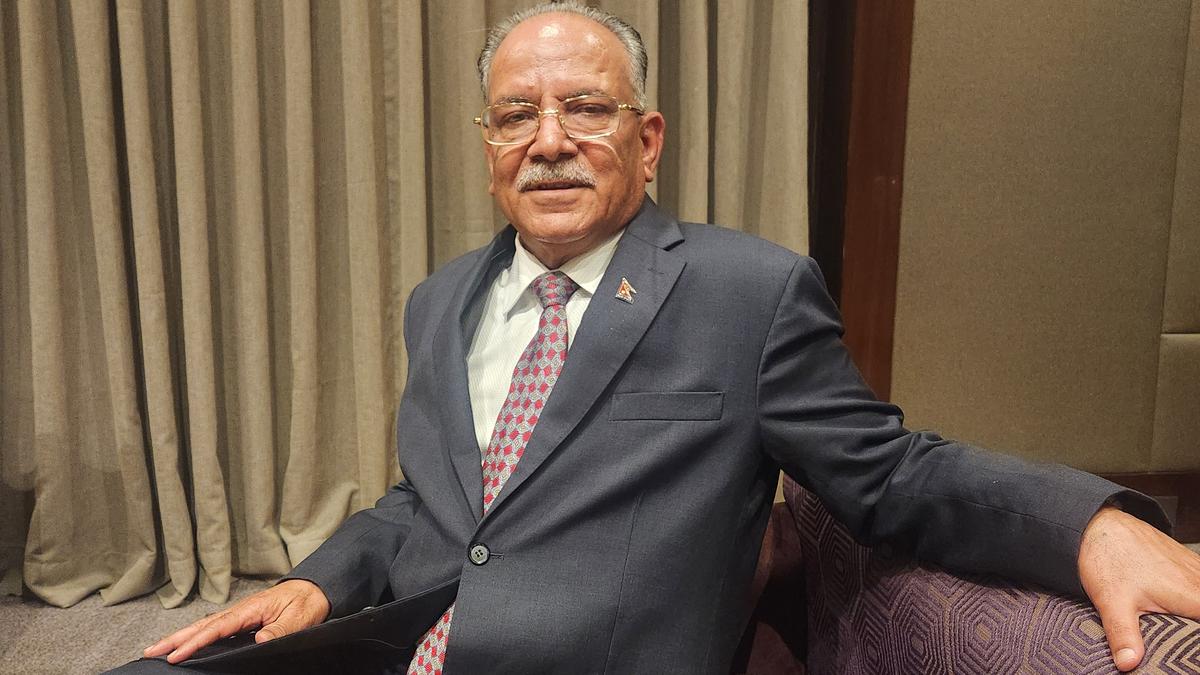Slamming Nepal Prime Minister K.P. Sharma Oli for playing what he called the “China card”, former Nepali PM Pushpa Kamal Dahal, now Leader of the Opposition, said that India-Nepal ties are under a strain due to the new government’s policies and that there is a “danger” that the border-dispute would be rekindled. In an exclusive interview with The Hindu here, Mr. Dahal, popularly known as Prachanda, said that he had taken India-Nepal ties to “new heights” during his 18-month tenure that ended abruptly in July when he lost a vote of confidence in parliament and was replaced by a coalition between Mr. Oli’s UML and the Nepali Congress party.
Speaking at the Kantipur Conclave organized in Kathmandu, you said that you took India-Nepal ties to new heights during your most recent term (December 2022- July 2024). Yet just four months later, there seem to be a number of tensions and issues that have cropped up in the relationship- why do you think that has happened?
During my tenure India-Nepal ties indeed were taken to new heights. During my visit there in June 2023, and talks with Prime Minister Narendra Modi, we reached several important agreements and a deep understanding that was far-reaching. I returned this year for Mr. Modi’s oath-taking ceremony (in June 2024) and spoke with him and External Affairs Minister S. Jaishankar I feel proud that we were able to build strong relations based on both country’s national interests. I feel what is happening in Nepal at present after my government was ousted, is wrong, vis-à-vis India- this is not right.
PM Oli is going to Beijing soon, and officials say India has not issue an invitation so far. This is the first time we are seeing a Nepali PM not come to India first after coming to office. Where does the problem lie?
This is proof of the immaturity of the present government led by PM Oli. They should have shown some maturity in their ties with both the neighbouring countries. KP-ji is going to China for a bilateral visit, but it seems this visit is more about using the ‘China card’, which is wrong. Our history, culture and geography dictate that we must balance our relationship, and he must acknowledge Nepal’s unique relationship with India before going [to China]. This should not have happened.
Two major issues between Delhi and Kathmandu seem to be over India denying Nepal’s request, which you had made publicly last year for additional overflight routes to Pokhara and Bhairahawa airports, and India’s refusal to buy any hydropower or goods that have a Chinese component. What is the solution?
On the Hydropower issue, India and Nepal announced historic agreements last year, including the purchase of 10,000 MW by India. We were close to an agreement on taking forward the Pancheshwar Multipurpose Project, and I think that if I had been allowed to remain in power another six months, that would have been finalized. On the border issues too (Susta-Kalapani-Limpiyudhara), Mr. Modi said that we would have resolved the issue with the intense engagement we had, and India had sent that message to Nepal. I fear there’s a danger that given the situation now, this is going to be reopened again and become a bigger issue. We need to move carefully, improve ties and resolve this issue.
From India’s perspective, it seems Nepal changes its government very often, it is hard to keep up with the political scenario. You are now in the opposition again; do you see yourself reclaiming the Prime Minister’s post?
I don’t want to be in the race for the Prime Minister at present. I want to focus all my attention on creating a better bond with the people in Nepal, and not to run behind the post. But my fear is what if the post runs behind me, and our party will have to decide what to do if that opportunity arises. Right now I just want to spend my energy improving the party’s standing with the public.
Could the Maoist parties re-unite?
Not all will come together, but many would like to join [us], and hopefully they will.
Nepal was the last host of the SAARC- which has not been organized since 2014 due to India-Pakistan tensions. Is SAARC finished, and should the region look at other ways to work on South Asian issues?
The problem with SAARC must be resolved. The major role in this is India’s, as it is by far the largest country in the region, so we would hope that India can find a way out, and we would always support that. SAARC must remain, we can’t abandon it.


